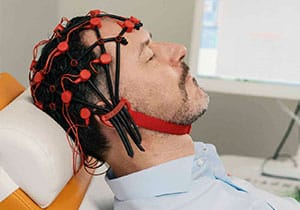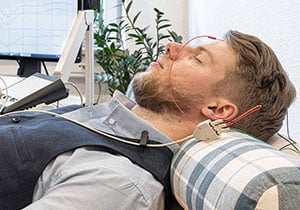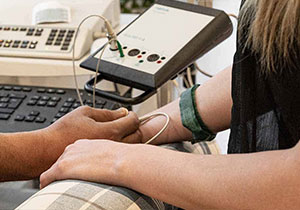
Dizziness
The organ of balance (vestibular organ) is located in the inner ear and is responsible for ensuring that people do not lose their balance. It consists of fluid-filled semicircular canals with sensory cells. These cells provide information to the brain, which is needed to calculate the position of the body in space.
Symptoms and causes
Symptoms of a balance disorder can be varied:
- Dizziness
- Nausea
- Visual disturbances (spinning of the surroundings, feeling of falling or flying upwards)
- Discomfort due to uncertainty
- Unsteady gait and difficulty maintaining balance
Dizziness and balance disorders do not necessarily have to be a disease. For example, motion sickness/seasickness and vertigo occur as a hypersensitivity reaction to strong waves.
However, it can also be a direct disorder of the vestibular system. This can be, for example
- Meniere’s disease (a disorder of the inner ear that leads to dizziness, tinnitus and hearing loss due to fluid accumulation),
- an inflammation of the inner ear,
- Diseases of the semicircular canals in the inner ear,
- inflammation of the vestibular nerves (vertigo — associated with nausea and vomiting),
- Benign positional vertigo (deposits of calcium crystals in the inner ear disrupt the balance system and cause dizziness with certain head movements),
- or a tumor .
However, diseases of the eyes and the optic nerve can also cause dizziness, as the transmission of visual stimuli is also important for the sense of balance.
Disorders of other organs due to injury or illness can also cause balance disorders: metabolic disorders, hypoglycemia, blood pressure that is too high or too low, dehydration, sunstroke and heat stroke, head injuries, meningitis, circulatory disorders in the brain or nerve disorders can lead to the symptom of dizziness.
There are also psychological causes. Here, phobic vertigo occurs very frequently in the context of anxiety disorders.
The cause of a balance disorder is decisive for the symptoms and their treatment. The focus is on treating the underlying disease. In our practice, we offer various innovative methods to help those affected.




